 Cooperation of SRCE involves participation and active contributions in international and national projects, membership, and participation in the work of several international associations and institutions, organizations, and formal and informal contacts with international institutions and experts.
Cooperation of SRCE involves participation and active contributions in international and national projects, membership, and participation in the work of several international associations and institutions, organizations, and formal and informal contacts with international institutions and experts.
Through membership and participation in the work of international associations and projects, SRCE, in addition to the exchange of knowledge and experience, also achieves the integration of Croatia into the European Research Area (ERA) and European Higher Education Area (EHEA), as well as the opportunity to participate in creating future trends.
SRCE actively participates in the following international (EU) and national projects
![]() Project objective: Digital transformation is one of the key priorities of the European Union to facilitate rapid recovery and increase the resilience of the economy, within the framework of the Recovery and Resilience Mechanism. The Croatian National Recovery and Resilience Plan (NRRP) under component 3 "Education, Science, and Research" states that the quality of higher education largely depends on the availability of quality teaching resources and their accessibility.
Project objective: Digital transformation is one of the key priorities of the European Union to facilitate rapid recovery and increase the resilience of the economy, within the framework of the Recovery and Resilience Mechanism. The Croatian National Recovery and Resilience Plan (NRRP) under component 3 "Education, Science, and Research" states that the quality of higher education largely depends on the availability of quality teaching resources and their accessibility.
The e-Universities project implemented by CARNET aims at the digital transformation of higher education in the Republic of Croatia by improving the digital teaching infrastructure, introducing digital teaching tools, and strengthening the digital competences of teachers for teaching in a digital environment.
Start date: 21 March 2022
SRCE was entrusted with the task of building a new Information System for Records in Higher Education (ISeVO) and an Information System for Monitoring Program Contracts (ISpPU), as well as adapting the existing information infrastructure of higher education. Also, SRCE's experts will participate in the development of the curriculum of the modular program for the development of digital competences of users in higher education, the development of the methodology, and the evaluation of the educational content of the modules, as well as research activities.
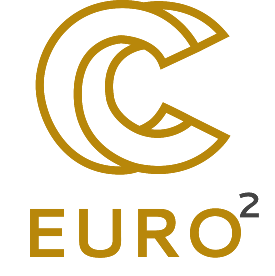 Project objective: The National Competence Centers in the Framework of EuroHPC Phase 2 (EuroCC 2) project is a continuation of the EuroCC project, which established a network of national competence centers for high performance computing (HPC) in 33 member states of the European High Performance Computing Joint Undertaking (EuroHPC JU) with the aim of providing a catalog a service adapted to the respective national needs of industry, the academic and scientific community, and public administration. The goal of the EuroCC 2 project is to continue promoting the use of HPC at the national level, identifying the needs of relevant users, and upgrading the offer of HPC competence centers. The emphasis is on providing access to HPC resources to small and medium-sized companies to increase their innovation capabilities through tools, services, and education programs tailored to their specific requirements.
Project objective: The National Competence Centers in the Framework of EuroHPC Phase 2 (EuroCC 2) project is a continuation of the EuroCC project, which established a network of national competence centers for high performance computing (HPC) in 33 member states of the European High Performance Computing Joint Undertaking (EuroHPC JU) with the aim of providing a catalog a service adapted to the respective national needs of industry, the academic and scientific community, and public administration. The goal of the EuroCC 2 project is to continue promoting the use of HPC at the national level, identifying the needs of relevant users, and upgrading the offer of HPC competence centers. The emphasis is on providing access to HPC resources to small and medium-sized companies to increase their innovation capabilities through tools, services, and education programs tailored to their specific requirements.
Start date: 1 January 2023
SRCE, as one of the project partners, leads a consortium of Croatian institutions that participate as affiliated entities of SRCE, namely: Faculty of Electrical Engineering, Mechanical Engineering and Naval Architecture of the University of Split (FESB), Faculty of Electrical Engineering, Computer Science and Information Technology Osijek (FERIT), Faculty of Engineering of the University of Rijeka (RITEH) and Ruđer Bošković Institute (IRB).
 Project objective: The European Digital Innovation HUB CROatian Industry and Society BOosting (EDIH CROBOHUB++) is a project to establish a digital innovation center in Croatia, which will offer services in three key areas: artificial intelligence, cyber security, and high-performance computing, and will represent central place for providing support to small and medium-sized enterprises that want to use the possibilities of digital and green transformation for the development of their business. SRCE is a member of the consortium led by the Faculty of Electrical Engineering and Computing of the University of Zagreb, along with the Innovation Center "Nikola Tesla", the Croatian Chamber of Commerce, HAMAG BICRO, Algebra, and InfoDom.
Project objective: The European Digital Innovation HUB CROatian Industry and Society BOosting (EDIH CROBOHUB++) is a project to establish a digital innovation center in Croatia, which will offer services in three key areas: artificial intelligence, cyber security, and high-performance computing, and will represent central place for providing support to small and medium-sized enterprises that want to use the possibilities of digital and green transformation for the development of their business. SRCE is a member of the consortium led by the Faculty of Electrical Engineering and Computing of the University of Zagreb, along with the Innovation Center "Nikola Tesla", the Croatian Chamber of Commerce, HAMAG BICRO, Algebra, and InfoDom.
Start date: 1 January 2023
SRCE will provide support in the field of high-performance computing, including access to the knowledge and technologies of the Croatian Competence Center for High Performance Computing (HR HPC CC).
 Project objective: The Croatian Quantum Communication Infrastructure (CroQCI) project aims to develop an advanced national quantum communication network that will be created by the implementation of experimental quantum communication systems and networks, supplemented and integrated with a series of classic secure communication technologies. This includes developing and testing devices and systems that combine the best of quantum, post-quantum classical, and quantum-enhanced solutions.
Project objective: The Croatian Quantum Communication Infrastructure (CroQCI) project aims to develop an advanced national quantum communication network that will be created by the implementation of experimental quantum communication systems and networks, supplemented and integrated with a series of classic secure communication technologies. This includes developing and testing devices and systems that combine the best of quantum, post-quantum classical, and quantum-enhanced solutions.
The CroQCI consortium gathers leading Croatian institutions and companies in the field of quantum systems, quantum and classical information, and communication technologies, namely: Ruđer Bošković Institute; Faculty of Electrical Engineering and Computing, University of Zagreb; Faculty of Transport and Traffic Sciences, University of Zagreb; Institute of Physics; The Office of the National Security Council; OIV Ltd; PCE Marine Electronic Center, Split; and the University Computing Centre (SRCE) - under the leadership of the Croatian Academic and Research Network (CARNET).
Start date: 1 January 2023
An important part of the project is educational activities, and SRCE is entrusted with the implementation of a work package in which a series of educational activities and training will encourage the optimal use of knowledge and skills related to cyber security and the application of quantum technology, as well as raising awareness of the need for better-protected communication and cyber security in the upcoming quantum era.
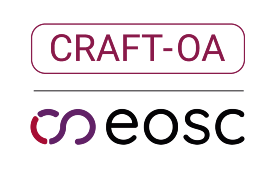 Project objective: The project Creating a Robust Accessible Federated Technology for Open Access (CRAFT-OA) is aiming for strengthening and evolving of Europe-wide institutional publishing in Diamond Open Access through the following four groups of activities:
Project objective: The project Creating a Robust Accessible Federated Technology for Open Access (CRAFT-OA) is aiming for strengthening and evolving of Europe-wide institutional publishing in Diamond Open Access through the following four groups of activities:
- technological improvement of platforms and tools for publishing OA journals
- building a sustainable community that would work on the improvement of the entire OA infrastructure
- increasing the visibility and recognition of diamond journals
- integration of services and tools with EOSC and other significant data aggregators.
Start date: 1 January 2023
SRCE contributes to the project by the virtue of many years of experience gained in the development and maintenance of HRČAK (Portal of Croatian scientific and professional journals) by gathering the needs of the journal editorial board, promoting and supporting good editorial practices such as support for publication in the JATS XML format, working on improving the Open Journal System (OJS) platform, and additional educational activities and courses on the use of OJS for editors.
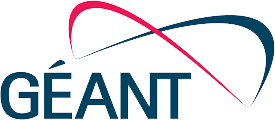 Project objective: The goal of the international project GÉANT5 (GN5-1) is the further development of advanced network e-infrastructure and user services for the needs of researchers and their projects in Europe within the ERA. GÉANT5 is a continuation of previous GÉANT infrastructure projects that have been supporting the European education and research communities for more than 20 years and is funded under the European framework program for research and innovation, Horizon Europe.
Project objective: The goal of the international project GÉANT5 (GN5-1) is the further development of advanced network e-infrastructure and user services for the needs of researchers and their projects in Europe within the ERA. GÉANT5 is a continuation of previous GÉANT infrastructure projects that have been supporting the European education and research communities for more than 20 years and is funded under the European framework program for research and innovation, Horizon Europe.
Start date: GN5-1 is one of the first in a series of projects planned within the seven-year strategic framework GN5, and it started on 1 January 2023.
SRCE participates as a linked third party of CARNET in the development and maintenance of eduroam and eduGAIN services.
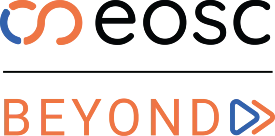 Project objective: The goal of the EOSC Beyond project is to advance open science and innovation in research by providing new EOSC central services, the so-called EOSC Core Service. The European Open Science Cloud (EOSC) is an established federation of services, tools, data and other research facilities, in short "resources" of hundreds of service providers at local, national, regional and European level. EOSC Core services are created by integrating and merging multiple EOSC resources, enabling the discovery, access and reuse of a growing number of resources across European scientific communities, organizations and countries, to accelerate time to discovery and drive European excellence in science.
Project objective: The goal of the EOSC Beyond project is to advance open science and innovation in research by providing new EOSC central services, the so-called EOSC Core Service. The European Open Science Cloud (EOSC) is an established federation of services, tools, data and other research facilities, in short "resources" of hundreds of service providers at local, national, regional and European level. EOSC Core services are created by integrating and merging multiple EOSC resources, enabling the discovery, access and reuse of a growing number of resources across European scientific communities, organizations and countries, to accelerate time to discovery and drive European excellence in science.
Start date: 1 April 2024
Srce participates in the expansion of existing and the introduction of new opportunities within EOSC Core services, based on the experience in development of the ARGO system for online monitoring of EOSC services.
 Project objective: The European University of Cities in Post-Industrial Transition (UNIC) is an established European alliance of ten universities located across Europe. The goal of The European University of Cities in Post-Industrial Transition (UNIC) project is to further encourage knowledge development and co-creation through collaboration, innovation and inclusion for social impact and improvement. In the upcoming project period, UNIC will organize activities in the field of education and research, which will include city laboratories (CityLabs), microcredentials, mobility offers, doctoral studies and other research programs and university policies.
Project objective: The European University of Cities in Post-Industrial Transition (UNIC) is an established European alliance of ten universities located across Europe. The goal of The European University of Cities in Post-Industrial Transition (UNIC) project is to further encourage knowledge development and co-creation through collaboration, innovation and inclusion for social impact and improvement. In the upcoming project period, UNIC will organize activities in the field of education and research, which will include city laboratories (CityLabs), microcredentials, mobility offers, doctoral studies and other research programs and university policies.
Start date: 1 October 2023
Erasmus University Rotterdam is the coordinator of the project, and Srce is an affiliated entity of the University of Zagreb, one of the ten project partners, and is working on the development of the UNIC hybrid campus.
 Project objective: The objective of the complementary project The European University of Post-Industrial Cities; Towards a collaborative approach and structure towards engaged research (UNIC4ER) is to strengthen the research and innovation component of the UNIC project. The UNIC4ER project envisages a series of activities aimed at achieving a collaborative environment and structure for engaged research in the post-industrial transition of cities.
Project objective: The objective of the complementary project The European University of Post-Industrial Cities; Towards a collaborative approach and structure towards engaged research (UNIC4ER) is to strengthen the research and innovation component of the UNIC project. The UNIC4ER project envisages a series of activities aimed at achieving a collaborative environment and structure for engaged research in the post-industrial transition of cities.
Start date: 1 September 2021
SRCE participates in the further development of UNIC's virtual campus based on the principles of open science, within which a platform will be established for the needs of collaborative research.
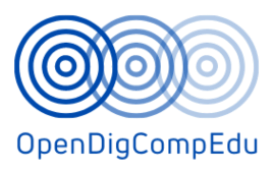 Project objective: The goal of the Open Digital Competences Training for School Educators (OpenDigCompEdu) project is to accelerate the digital competences of educators in school education from Spain, Romania, Croatia, Greece, and Norway towards the sustainable adoption of more online and blended approaches in education through the use of open educational technologies and open education principles. Within the framework of the project, four main tasks were set:
Project objective: The goal of the Open Digital Competences Training for School Educators (OpenDigCompEdu) project is to accelerate the digital competences of educators in school education from Spain, Romania, Croatia, Greece, and Norway towards the sustainable adoption of more online and blended approaches in education through the use of open educational technologies and open education principles. Within the framework of the project, four main tasks were set:
- to enhance the uptake of open education, open education practices, resources, and open digital tools for delivering competence-based teaching;
- to create and validate an understanding of the sustainability in education through open education within the Framework for open and digital competences for educators;
- to improve the achievement and recognition of digital competences for education through e-portfolio and formal learning by introducing the OpenDigCompEdu e-portfolio and OpenDigCompEdu MOOC courses for educators;
- to introduce micro-credentials and open badges in open digital competences for school education in the partner countries.
Start date: 1 November 2021
SRCE is a project partner and participates in all project activities, especially in the improvement of achievements and the recognition of digital competences of teachers using the e-portfolio system, thanks to the knowledge of the European Framework of Digital Competences and the acquired experience.
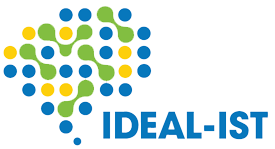 Project objective: Ideal-ist is an international ICT (Information and Communication Technologies) National Contact Point (NCP) network with the aim of providing quality advisory and administrative support to potential project applicants in the Horizon Europe programme. The project gathers more than 30 NCPs responsible for the field of digitization, enabling them to access a rich knowledge base, tools, experience exchange, and interaction between project applicants, NCPs, the European Commission, and strategic partnerships that will improve their expertise and participation, and also contribute to the quality of project proposals.
Project objective: Ideal-ist is an international ICT (Information and Communication Technologies) National Contact Point (NCP) network with the aim of providing quality advisory and administrative support to potential project applicants in the Horizon Europe programme. The project gathers more than 30 NCPs responsible for the field of digitization, enabling them to access a rich knowledge base, tools, experience exchange, and interaction between project applicants, NCPs, the European Commission, and strategic partnerships that will improve their expertise and participation, and also contribute to the quality of project proposals.
Start date: 1 March 2022
An employee of SRCE, the national contact person for the Digitalization area in the "Digitalization, Industry and Space" cluster of the Horizon Europe programme, is participating in the project.
Project objective: 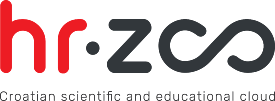 The Croatian Scientific and Educational Cloud (HR-ZOO) project aims to build a core component of the national research and innovation e-infrastructure with the intention of providing the Croatian scientific and academic community with long-term advanced computing and storage resources and network connectivity, necessary for modern and multidisciplinary science and education.
The Croatian Scientific and Educational Cloud (HR-ZOO) project aims to build a core component of the national research and innovation e-infrastructure with the intention of providing the Croatian scientific and academic community with long-term advanced computing and storage resources and network connectivity, necessary for modern and multidisciplinary science and education.
Start date: 1 July 2017
Croatian scientific and educational cloud (HR-ZOO) is a national e-infrastructure for science and education that offers every scientist, researcher, or teacher a flexible environment for collaboration, and the ability to transfer, store and process large amounts of data with specialized support when using advanced information technologies.
 Project objective: The objective of the Scientific and Technology Foresight project is to create a coherent and complete system for determining priorities for research, development, and innovation policies in the Croatian scientific space:
Project objective: The objective of the Scientific and Technology Foresight project is to create a coherent and complete system for determining priorities for research, development, and innovation policies in the Croatian scientific space:
- by establishing a legal framework
- by creating the CroRIS - Croatian Research Information System
- by carrying out activities of scientific and technological mapping and forecasting.
The Ministry of Science and Education of the Republic of Croatia implements this strategic project in cooperation with the University Computing Centre (SRCE).
Start date: 1 December 2017
SRCE is responsible for the implementation of the second element of the ZTP project, the creation of CroRIS, which will provide the academic and research community of the Republic of Croatia with a unique, integrated, and interoperable system of all relevant information on the Croatian scientific activity.
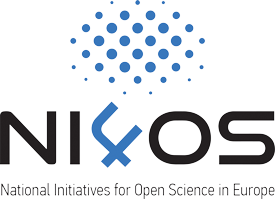 Project objective: National Initiatives for Open Science in Europe (NI4OS-Europe) project aim is to support the coordination, convergence, and federation of national and/or thematic initiatives for open research data and EOCS services by developing appropriate common tools and mechanisms. On the one hand, the objectives are to support the gradual alignment of policies and practices of EOSC-relevant national and/or thematic initiatives with EOSC standards, and on the other hand to allow open access to non-commercial services through the EOSC portal.
Project objective: National Initiatives for Open Science in Europe (NI4OS-Europe) project aim is to support the coordination, convergence, and federation of national and/or thematic initiatives for open research data and EOCS services by developing appropriate common tools and mechanisms. On the one hand, the objectives are to support the gradual alignment of policies and practices of EOSC-relevant national and/or thematic initiatives with EOSC standards, and on the other hand to allow open access to non-commercial services through the EOSC portal.
Start date: 1 September 2019
SRCE actively supports the research community in accepting and using EOSC services, applying the FAIR principle, and integrating national repositories. Through this project, SRCE gathered knowledge and contributed to the gathering of numerous stakeholders of the science and higher education system in the field of open science in the Croatian Open Science Cloud Initiative (HR-OOZ).
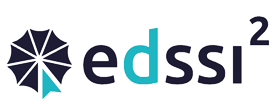 Project objective: The objective of the European Digital Student Service Infrastructure – Level 2 (EDDSI 2) project is the development of a virtual student card and the development of an architecture that will enable its use with the use of the European Student Identifier (ESI) in order to facilitate, simplify and increase the quality of student mobility. The EDSSI 2 project will expand the platform of basic digital services for student mobility, established as part of the EDSSI (European Digital Student Service Infrastructure) project, which enables safe and undisturbed data exchange between higher education institutions across Europe.
Project objective: The objective of the European Digital Student Service Infrastructure – Level 2 (EDDSI 2) project is the development of a virtual student card and the development of an architecture that will enable its use with the use of the European Student Identifier (ESI) in order to facilitate, simplify and increase the quality of student mobility. The EDSSI 2 project will expand the platform of basic digital services for student mobility, established as part of the EDSSI (European Digital Student Service Infrastructure) project, which enables safe and undisturbed data exchange between higher education institutions across Europe.
Start date: 1 September 2021
SRCE, as a partner in the project, participates in the development of the architecture, testing, and introduction of new features of the platform of basic digital services for student mobility.
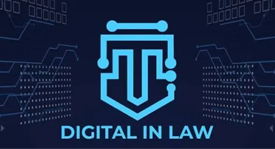 Project objective: Time to Become Digital in Law (DIGinLaw) project will advance the utilization of digital technologies in higher education in the field of law. The project partners are higher education institutions aware of how strongly digitization affects science, knowledge transfer, and society in general and share a vision of the development of legal education based on digital technology, which enables the development of advanced standards of digital competences and contributes to the European labor market by creating legal experts with highly developed digital skills and competences.
Project objective: Time to Become Digital in Law (DIGinLaw) project will advance the utilization of digital technologies in higher education in the field of law. The project partners are higher education institutions aware of how strongly digitization affects science, knowledge transfer, and society in general and share a vision of the development of legal education based on digital technology, which enables the development of advanced standards of digital competences and contributes to the European labor market by creating legal experts with highly developed digital skills and competences.
Start date: 1 April 2021
SRCE, as a partner, contributes to this project with its expertise in the field of e-learning and the implementation of digital technologies in the educational process, and also conducts educational activities for teachers and students to work in a digital environment and provides support to teachers from partner institutions in the preparation of MOOCs (Massive Open Online Courses).
 Project objective: The project Digital Education for Crisis Situations: Times when there is no alternative (DECriS) aims to create a framework for the proper adoption of Educational Resources in general, and especially in crises. The project has several specific research goals, the realization of which is based on the application of innovative digital technologies, the improvement of digital competences, the development of innovative curricula and educational methods, and the realization of international cooperation.
Project objective: The project Digital Education for Crisis Situations: Times when there is no alternative (DECriS) aims to create a framework for the proper adoption of Educational Resources in general, and especially in crises. The project has several specific research goals, the realization of which is based on the application of innovative digital technologies, the improvement of digital competences, the development of innovative curricula and educational methods, and the realization of international cooperation.
Start date: 1 March 2021
With many years of experience in the field of e-learning and the application of digital technologies in education, as well as the experience gained during the pandemic, SRCE participates as a partner and contributes to all project activities.
Information on completed projects is available on the subpage Completed Projects.

